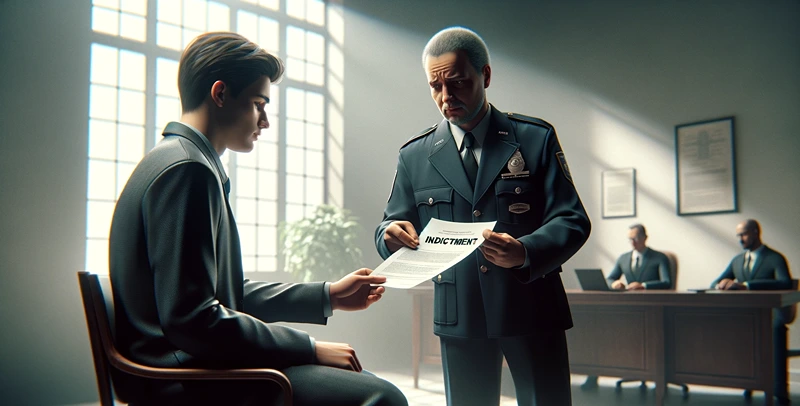
Investigative Article: Uncovering the Nine Stages of a Criminal Case in Arizona Law
Being indicted for a criminal case is a daunting experience, one that raises a number of questions about how the legal proceedings will play out. If you or a loved one is facing an indictment in Arizona, it's important to understand the process involved in a criminal case to make informed choices about how to move forward.
Grand Jury Proceedings in Arizona Law
In Arizona, a criminal case typically begins with an indictment, which is issued by a grand jury. The grand jury is composed of 16 to 23 citizens who are selected from the community, and their role is to determine whether there is enough evidence to support a criminal charge. During grand jury proceedings, witnesses may be called to testify, and evidence may be presented. Unlike a trial, however, only the prosecutor is present during grand jury proceedings.
What is a Criminal Indictment in Arizona Law?
A criminal indictment is a formal accusation that a person has committed a crime. It is issued by a grand jury, based on evidence presented by a prosecutor. An indictment does not mean that a person is guilty of a crime; rather, it means that there is enough evidence to support a criminal charge.
Is an Indictment the Same Thing as Criminal Charges?
Yes and no. An indictment is a formal accusation that a person has committed a crime, but it is not the same thing as criminal charges. In Arizona, criminal charges are filed by a prosecutor after an indictment has been issued. After charges are filed, the case moves forward to trial or plea negotiations.
The Nine Stages of a Criminal Case in Arizona Law
Now that we have a basic understanding of what an indictment is and how it relates to criminal charges, let's take a closer look at the stages involved in a criminal case in Arizona:
1. Arrest
The first stage of a criminal case is often an arrest. If the police have probable cause to believe that a person has committed a crime, they may arrest that person. At this stage, it's important to remain silent and contact an experienced criminal defense attorney.
2. Initial Appearance
After an arrest, a person may be brought before a judge for an initial appearance. At this stage, the judge will inform the defendant of the charges and their rights, including the right to an attorney.
3. Preliminary Hearing or Grand Jury
After the initial appearance, the case will move forward to either a preliminary hearing or grand jury proceedings. At this stage, the prosecution must present evidence to support the charges against the defendant.
4. Arraignment and Plea Bargaining
After a defendant is indicted, they will be arraigned and asked to enter a plea. At this stage, the defendant may choose to plead guilty, not guilty, or no contest. If the defendant chooses to plead guilty or no contest, plea bargaining may take place with the prosecutor.
5. Pretrial Motions and Discovery
During this stage, the defense and prosecution exchange information about the case and may file motions to exclude evidence or dismiss charges.
6. Trial
If the case proceeds to trial, a judge or jury will hear evidence and determine whether the defendant is guilty or not guilty.
7. Sentencing or Acquittal
If the defendant is found guilty, the case will move to the sentencing phase. If the defendant is found not guilty, they will be acquitted.
8. Appeals
If a defendant is convicted, they may choose to appeal the verdict or sentence.
9. Post-Conviction Relief
If a defendant's constitutional rights were violated during the trial, they may file for post-conviction relief to have their case re-examined.
Should You Hire a Defense Attorney For a Criminal Indictment?
Yes, it is highly recommended that you hire an experienced criminal defense attorney if you are facing a criminal indictment in Arizona. An attorney can help you navigate the legal proceedings and protect your rights throughout the process.
Contact Kolsrud Law Offices for Experienced Criminal Defense Representation
If you or a loved one is facing a criminal indictment in Arizona, contact Kolsrud Law Offices for experienced criminal defense representation. Our attorneys have a proven track record of success and will fight tirelessly to protect your rights and achieve the best possible outcome in your case.
Criminal Indictment, Arizona





